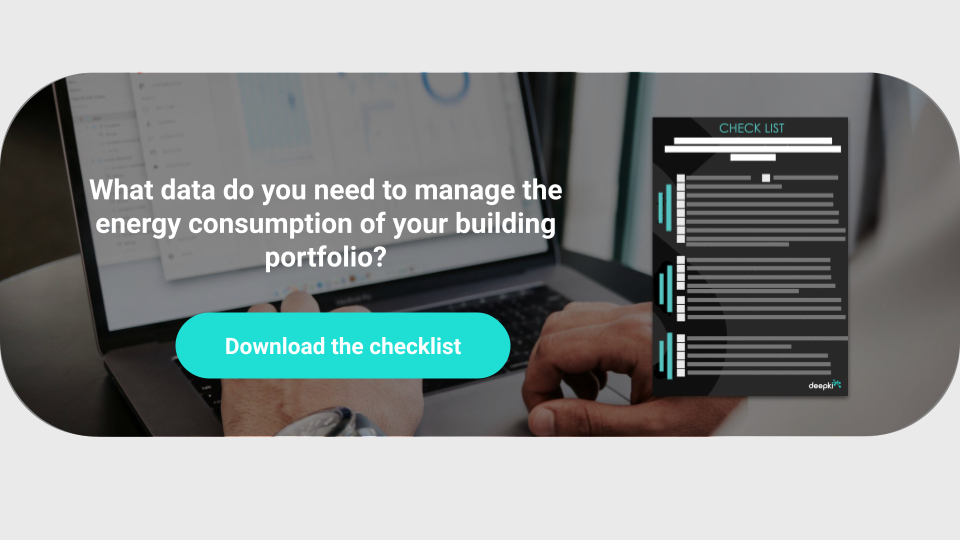Energy Management
Energy management involves the planning and operation of energy production and consumption units. This function is carried out by energy managers whose main task is to reduce the energy bill of their company or client.
Main objectives of energy management
- To consume better or to consume less;
- To help you manage your total energy consumption;
- To ensure continuous access to the needed energy.
Data & Energy Management
Existing data may be very useful in the context of an energy management policy. It is imperative to plan the implementation of data collection methods carefully. Before collecting additional data, it is essential to take stock and enrich the data that already exists.
You’re probably not aware of the data already at your disposal, such as:
- Asset data (type of buildings, surface area, number of floors, etc.)
- Energy data (energy bills, energy contracts, remote meter reading, etc.)
- Activity data (opening hours, footfall, average basket, etc.)
- Open data (weather, cadastres, statistical studies, etc.).
The analysis of all the associated data collected allows one to know and understand a property in order to detect consumption anomalies or to distinguish between good and bad performers. In this way, you can determine and prioritize the actions to be taken as part of an energy management approach.
Energy management also allows one to monitor the actions carried out and have access to the results in order to calculate the achievable energy-saving plan.
Contrary to popular opinion, you probably already have a lot of data that allows you to do the essential! It is therefore preferable to implement a pragmatic approach based on existing data rather than re-instrumenting your entire portfolio that generates an excessive volume of data. Collecting existing data allows you to understand your portfolio and detect certain sites where you are missing data. With this analysis, it will then be possible to intelligently instrument your portfolio.
Discover what data you need to manage the energy consumption of your buildings and implement a pragmatic and efficient energy management approach:

